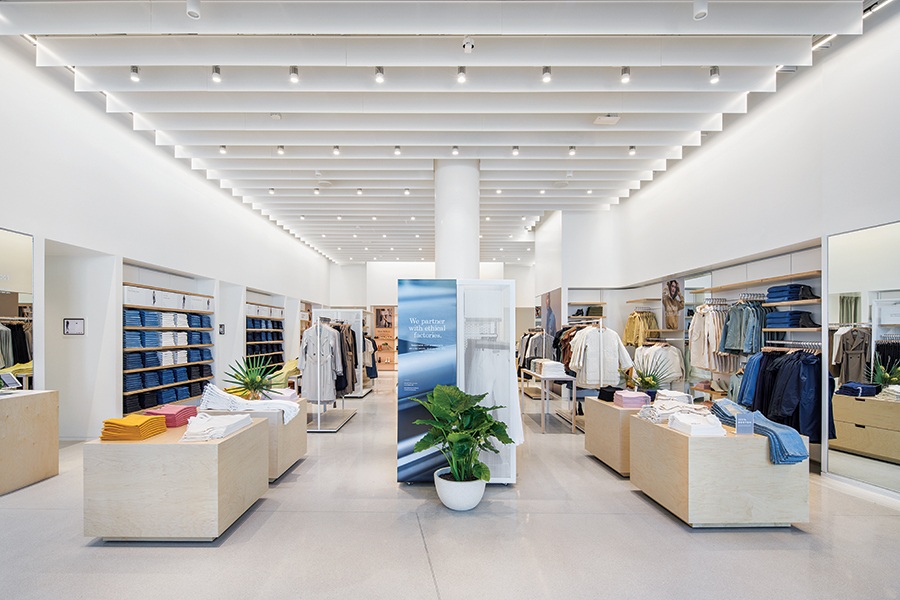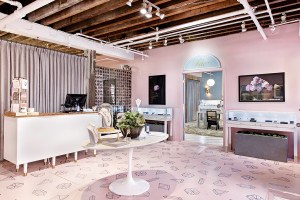Out with Fast Fashion, in with Sustainable Style in the Seaport
As dark times surely lead to brighter days, sustainable-fashion brand Everlane gets ready to plant itself in the Seaport.

“The Editor Slingback Heel,” $165, Everlane. / Photo by Bruce Peterson / Styling by Mona Miri
When it comes to clothes, Bostonians are smart shoppers—we appreciate the opportunity to dig into the “how” and “why” behind our purchases. And while the ever-expanding Seaport District has welcomed all sorts of retailers big and small in recent years, the latest upcoming addition, Everlane, is set to appeal to that most Bostonian of erogenous zones: the brain.
Founded in 2011, Everlane began as a direct-to-consumer fashion brand committed to what it calls “radical transparency,” using its website and social media to educate customers not just about its materials, but also supply chains, factories, and pricing markups down to the dollar. It was a revolutionary concept at the time, arriving just as the voyeurism of social media began to explode but before many clothing designers became digital-savvy. Taking a chance on something different paid off: Everlane has since opened brick-and-mortar storefronts in New York City, L.A., the Bay Area—and, very soon, the Seaport.

Natural light fills Everlane’s new Seaport store, where customers can experience IRL the products that made this digital-first retailer a success. / Photo by Bob O’Connor
Bathed in natural light from enormous storefront windows, Everlane’s new Boston boutique will offer the opportunity to see, touch, and fall in love with the brand’s sustainably produced, straightforward fashions in person. “The design of the store is really pure and minimal, because we want our product to really stand out,” says Tara Shanahan, Everlane’s vice president of retail.
And stand out, it does. Available online until the new store can open, Everlane’s men’s T-shirts are some of the best on the market, extra-durable and made to be washed over and over again. Its women’s “Cashmere Tee,” meanwhile, embodies an everyday, approachable sense of luxury, and is perfect for those unseasonably chilly spring days we’re bound to encounter this month. Jeans are a signature category for everyone: Produced at a factory in Vietnam where 98 percent of wastewater is recycled and the byproducts used in the denim manufacturing process are reprocessed into bricks for affordable housing projects, they’re truly a guilt-free purchase. And that’s what we call smart shopping.


